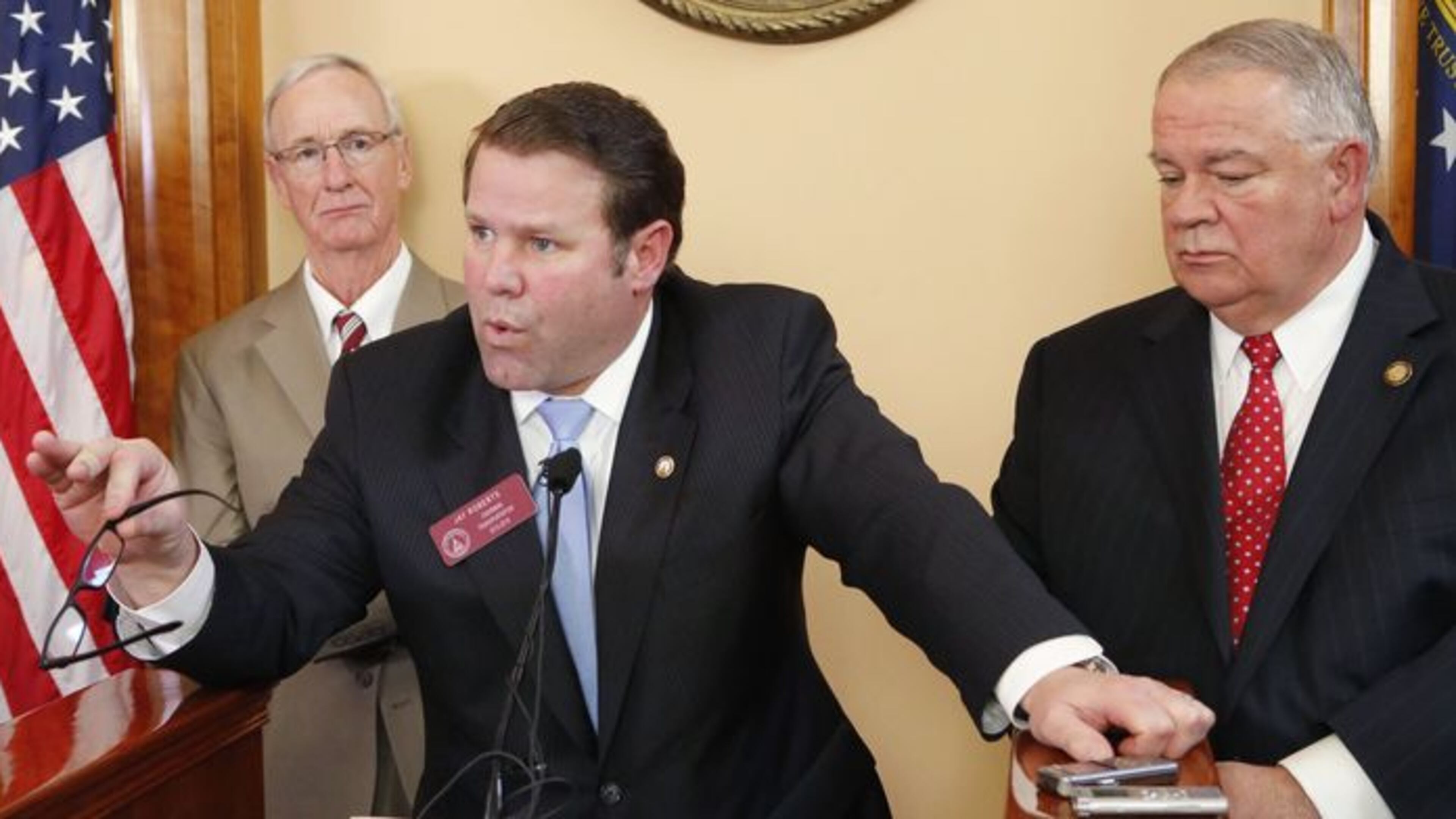Opinion
At first glance, House transportation plan looks good

House Transportation Chairman Jay Roberts, R-Oscilla, makes a point during a press conference Wednesday. (AJC Photo / Bob Andres)
The big transportation-plan reveal came Wednesday, and on first glance it appears to be a clear step in the right direction. We still haven't seen a bill -- that will come later Thursday -- so I'll refrain from delving too much into the details until they're in black and white. But from what we have heard so far from House Speaker David Ralston, House Transportation Chairman Jay Roberts and others, this much seems clear:
- At $1 billion per year in new, dedicated funding for transportation projects, the plan would get the state back on track for maintenance (e.g., repaving roads and rebuilding bridges) and allow for a couple of small to medium-size projects a year, based on what the Georgia DOT told lawmakers in presentations over the past year. That's much more solid footing than we're on now, but this money alone won't do much to add significant new capacity. Assuming GDOT's annual figure of $600 million per year for road and bridge maintenance, that leaves roughly enough money to pick one of the following new projects each year: rebuild the interchanges at I-16 and I-75 in Macon ($300 million), I-285 and I-20 west ($450M) or I-285 and I-20 east ($250M); widening I-85 from Atlanta to the Alabama line ($450M); complete half a dozen projects in rural Georgia ($674M for the whole list of 13); extend Sugarloaf Parkway in Gwinnett ($300M); or finish the U.S. 27 corridor running north-south near the Alabama line ($375M). Those are all fine projects, needed projects. But we're not talking about anywhere near enough money to tackle such major initiatives as "Revive 285" on the top end of the perimeter ($3 billion-plus) or other interstate-widening projects ($800M to $3B). So this likely isn't the last word on transportation funding.
- The structure of the new funding's sources will cause some heartburn among local politicians, because about half of it (roughly $550M) comes from current local sales taxes on motor fuel. But the hit they'll take might be overstated a bit. Because sales taxes imposed by referendum such as SPLOSTs and E-SPLOSTs are grandfathered in, it would appear local governments will continue to receive most of what they do now -- until those taxes are renewed, at which time motor fuel sales simply wouldn't be included in the tax base and the project lists they fund would be adjusted accordingly. The exception is the standard local option sales tax, or LOST, which most Georgia counties levy . Currently, a 1 percent sales tax is roughly equivalent to the 3 cents/gallon excise tax the bill would allow local governments to levy without a referendum. So while local governments might have to take the political hit for enacting a tax increase so that "the state" avoids raising your taxes, we're probably talking about only 3 cents per gallon. (NB: I reserve the right to change my view on this point especially if the facts turn out otherwise; this is my best evaluation at this time.)
- Transit advocates ought to be happy. For the first time, the state is spending $100M of its money on transit (to be divided among 128 transit providers, not just MARTA). While that bond package in this year's budget may or may not be repeated in the future, and while the revenues from a new tax on some alternative-fuel vehicles are envisioned but not constitutionally mandated to be used for transit, the mere presence of a new line item for transit is historic. Roberts said leaders intended for the bond proceeds to have some "flexibility" so that they might be used for infrastructure or for operations and maintenance. I'd quibble with that a bit: At a time when transit agencies are looking to expand their networks, I'd prefer to see state money go into infrastructure. If MARTA wants flexibility, do that by lowering the 50/50 restriction on how its sales tax revenues are divided (which, over the past decade-plus, has been most often observed in the breach anyway).
- One idea I heard today before the plan was announced was to arrange the revenues so that federal funds go toward maintenance and any new projects are built with state money; I'm told this is the way Florida handles its transportation budget. Why? Because federal money for new construction comes with all sorts of stipulations that make projects cost more and take longer to complete. It's been estimated Georgia would have as much as $180M more per year to spend if it didn't have to follow federal rules on new construction. That would be equivalent to increasing the addition to the capital budget (see first bullet point) by more than 50 percent. If it can be done, it seems like a no-brainer.
More to come as further details emerge.


